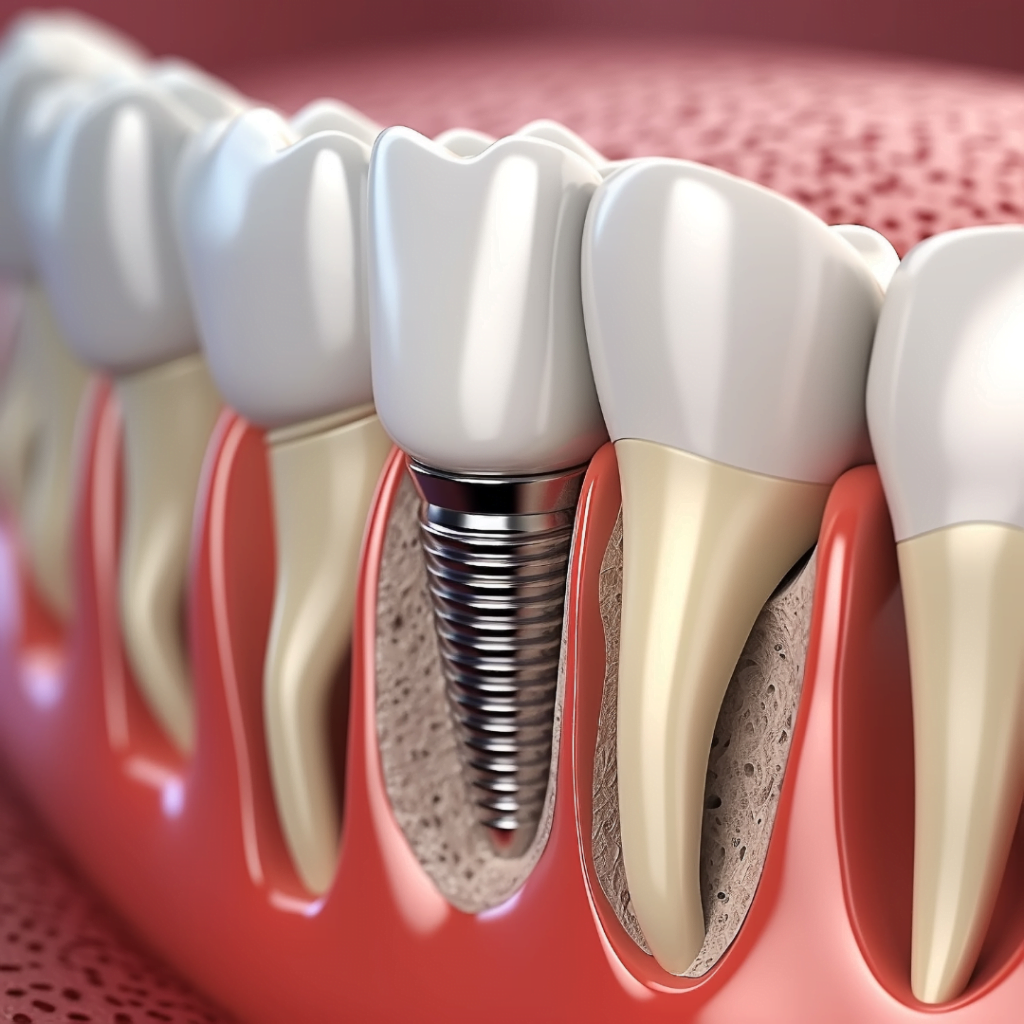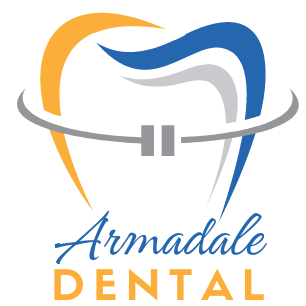Dental implants are a revolutionary solution for individuals seeking a permanent and natural-looking replacement for missing teeth. At Armadale Dental Clinic , we understand the impact that tooth loss can have on your confidence and oral health. Dental implants are a state-of-the-art treatment option that can transform your smile and restore your ability to eat, speak, and laugh with confidence.
Benefits of Dental Implants What sets dental implants apart is their ability to mimic natural teeth both in function and appearance. These titanium posts are surgically placed into the jawbone, where they fuse with the bone over time, creating a sturdy and long-lasting foundation for crowns, bridges, or dentures. Unlike traditional dentures or bridges, dental implants don’t rely on neighbouring teeth for support, preserving your existing dental structure. They provide superior stability, comfort, and durability, allowing you to enjoy your favourite foods without restriction and speak naturally. With proper care, dental implants can last a lifetime, making them a valuable investment in your oral health and overall well-being.
If you’re considering dental implants to restore your smile, schedule a consultation at Armadale Dental to explore this life-changing option and embark on the journey to a healthier, more confident you.

Who is most qualified for dental implants?
Eligibility for dental implants depends on several factors, and it’s essential to consult with a dental professional to determine your specific suitability for the procedure. However, here are some general guidelines for eligibility for dental implants:
- Sufficient Bone Density: Dental implants are typically anchored in the jawbone. To be eligible, you should have adequate bone density and volume in the jaw to support the implant. In cases where bone density is insufficient, bone grafting procedures may be recommended to augment the bone.
- Good Oral Health: Candidates for dental implants should have good overall oral health. Gum disease (periodontal disease) and untreated dental infections can increase the risk of implant failure. These issues must be addressed before implant placement.
- General Health: Your general health plays a role in eligibility as well. Conditions like uncontrolled diabetes, certain autoimmune disorders, and individuals who are undergoing radiation therapy in the head or neck area may have reduced suitability for dental implants.
- Age: Age alone does not disqualify someone from getting dental implants. What matters is overall health and the condition of your jawbone and oral tissues. Dental implants can be successful for people of various ages.
- Commitment to Oral Hygiene: Maintaining good oral hygiene is crucial for the long-term success of dental implants. Candidates should be willing and able to follow proper oral care routines and attend regular dental check-ups.
- Non-Smoker or Willingness to Quit Smoking: Smoking can increase the risk of implant failure and complications. While smokers are not necessarily ineligible, they are encouraged to quit or significantly reduce their smoking habits before and after implant surgery.
- Realistic Expectations: Candidates should have realistic expectations about the procedure and its outcomes. Dental implants can provide excellent results, but it’s important to understand the process and the potential risks involved.
- Absence of Bruxism: Individuals who grind or clench their teeth (bruxism) may be at a higher risk of implant failure. In such cases, measures to address bruxism may be necessary before implant placement.
- Proper Aftercare: Following implant surgery, you must be willing to adhere to post-operative care instructions provided by your dentist, including maintaining a soft diet during the initial healing period and attending follow-up appointments.
Remember that eligibility for dental implants can vary from person to person, and a thorough evaluation by a qualified dentist or oral surgeon is necessary to determine if dental implants are the right solution for your specific dental needs. They will consider your individual health history, oral health, and other factors to make an informed recommendation.
How are implants better than bridges?
Dental implants and bridges are both viable options for replacing missing teeth, but they have distinct advantages and disadvantages. Here’s how dental implants are often considered better than bridges in various aspects:
- Preservation of Adjacent Teeth:
- Implants: Dental implants are standalone replacements that do not rely on neighbouring teeth for support. This means adjacent healthy teeth do not need to be altered or reduced in any way, preserving their natural structure.
- Bridges: Dental bridges require the reduction of adjacent teeth (abutment teeth) to anchor the bridge. This can weaken these teeth and make them more susceptible to future dental issues.
- Durability and Longevity:
- Implants: Dental implants are known for their durability and can last a lifetime with proper care. They are typically made of titanium, which is biocompatible and resistant to decay.
- Bridges: Bridges have a lifespan of 5 to 15 years on average. They may need to be replaced or repaired over time due to wear and tear.
- Bone Health and Stability:
- Implants: Dental implants stimulate the jawbone, preventing bone loss and maintaining the integrity of the bone structure. This helps preserve facial aesthetics and prevents the “sunken” look that can occur with tooth loss.
- Bridges: Bridges do not provide the same level of bone stimulation, and over time, bone loss can occur beneath the missing tooth space.
- Aesthetics and Natural Feel:
- Implants: Implants look and feel like natural teeth. They are individually placed and provide excellent esthetics, allowing you to smile, eat, and speak with confidence.
- Bridges: While bridges can also look natural, they may not offer the same level of aesthetics and may not feel as natural in the mouth, especially for larger gaps.
- Maintenance and Cleaning:
- Implants: Dental implants are easy to maintain. You care for them just like natural teeth, with regular brushing, flossing, and dental check-ups.
- Bridges: Cleaning under a bridge can be more challenging, as special floss or tools are often needed to properly clean the area between the artificial tooth and the adjacent natural teeth.
- Stability and Function:
- Implants: Implants offer stability and functionality similar to natural teeth. They provide excellent chewing and biting strength without the risk of slipping or discomfort.
- Bridges: Bridges may not offer the same stability, especially in cases of larger gaps, and may require dietary restrictions.
- Flexibility:
- Implants: Implants can replace single missing teeth, multiple teeth, or even support full arches of teeth (implant-supported dentures).
- Bridges: Bridges are typically used to replace one or a few adjacent missing teeth and may not be suitable for more extensive tooth loss.
While dental implants offer several advantages over bridges, it’s essential to consult with a dentist or oral surgeon to determine the best treatment option for your specific dental needs and circumstances. They can consider factors like your oral health, bone density, and aesthetic preferences to help you make an informed decision. At Armadale Dental, your oral health journey is our priority, and we’re here to make every step of that journey a positive and rewarding experience.
